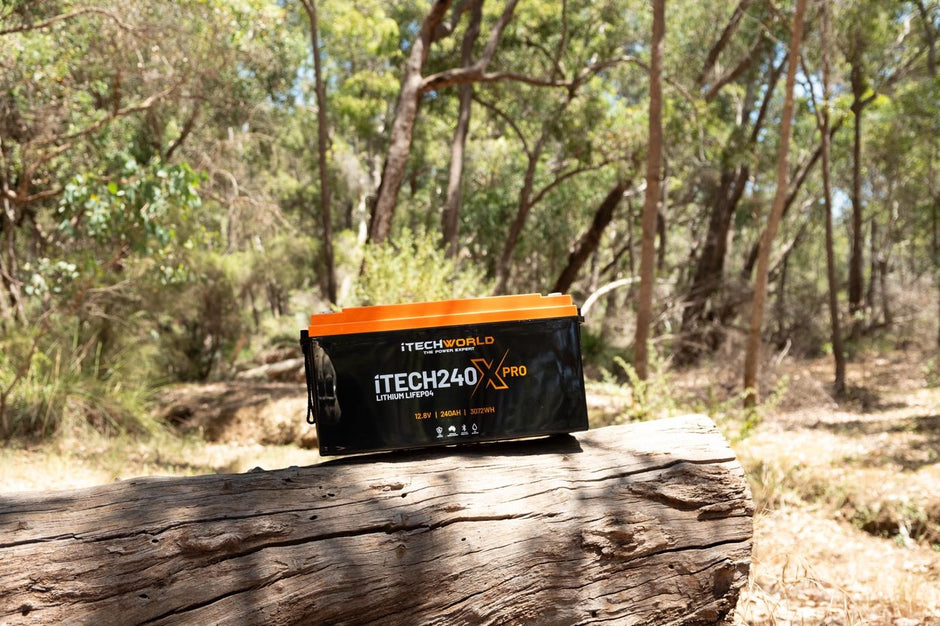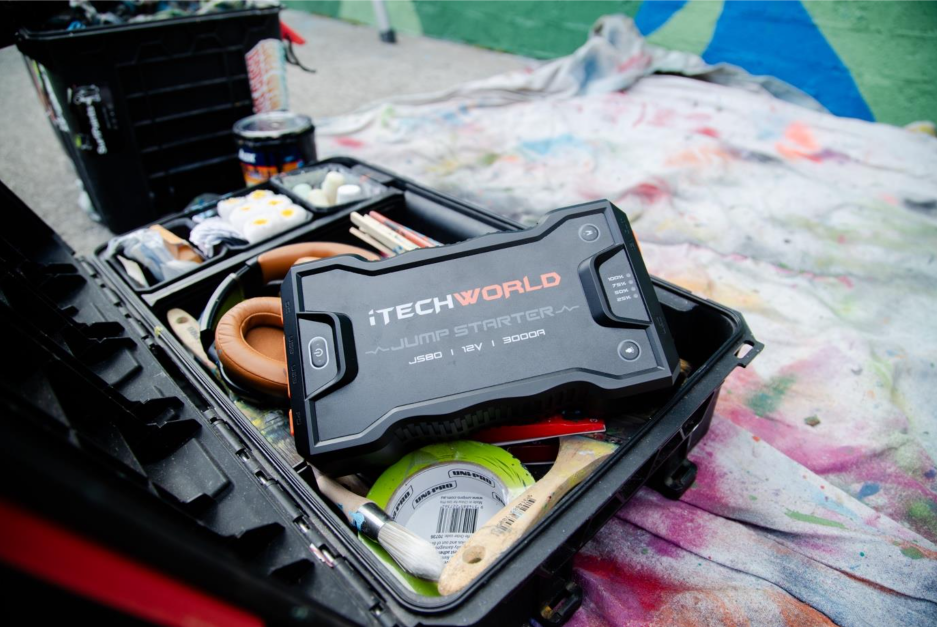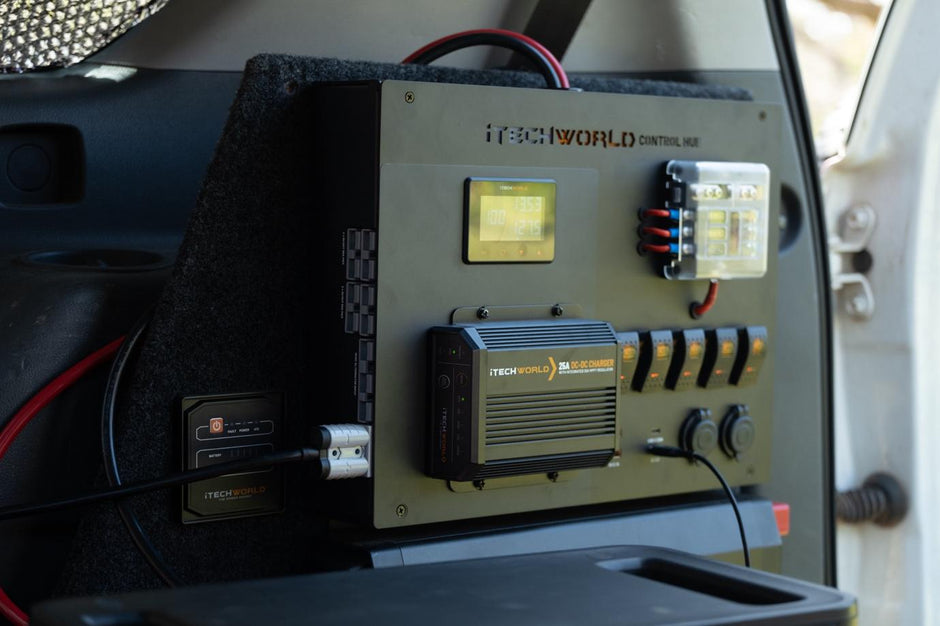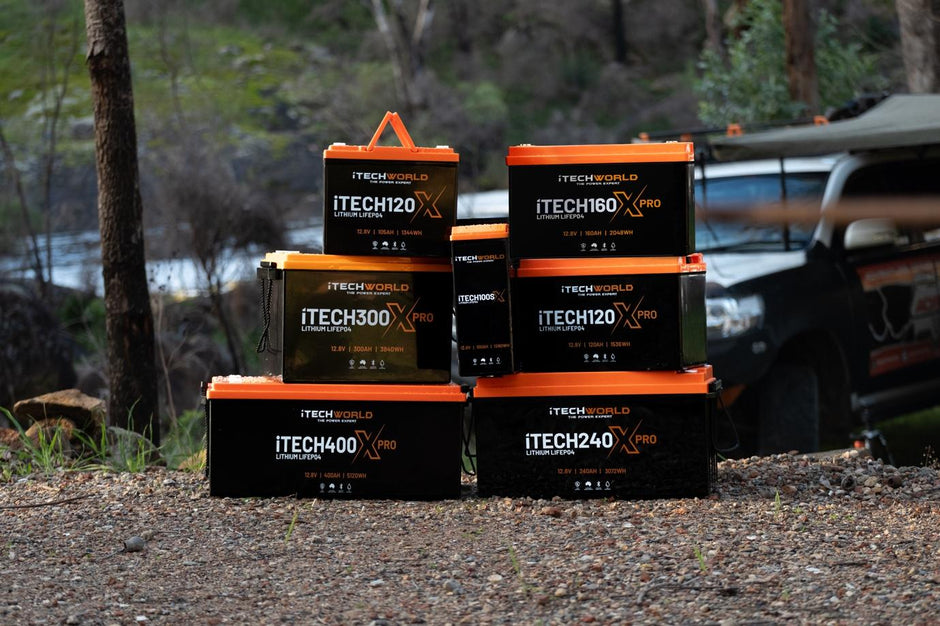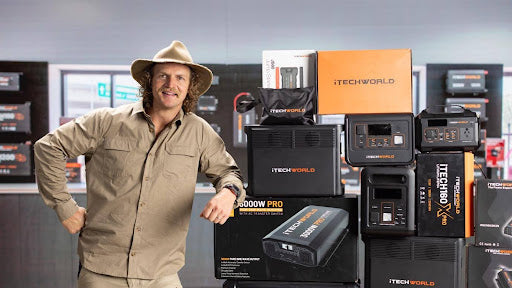Updated 28 August 2024
The main difference between a lithium battery and an AGM (Absorbed Glass Mat) battery is energy density and weight. A lithium battery has a much higher energy density, meaning it can store more energy in a smaller, lighter package. This leads to longer run times without added weight. An AGM battery running at the same capacity, e.g., 120ah, is heavier and bulker, meaning is has lower energy density. This distinction is significant for caravan and camping situations where weight and size are crucial considerations.
AGM vs lithium. There was only one choice back in the good old days: lead-acid AGM; then along came iTechworld lithium batteries, and everything changed.
Packed with safety features and technology that allows compatibility with existing charging methods, the new kids on the block are the perfect option for camping and caravanning.
Here are some reviews from happy caravan owners who changed from AGM batteries to lithium and haven't looked back:
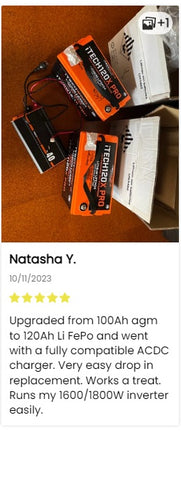

What are the benefits of lithium batteries?
AGM and lead-acid batteries are cheaper; however, they simply do not last a long time. No doubt you are familiar with the tedious and back-breaking task of replacing AGM batteries? Were there installation costs involved? How often must you replace them? Every three to four years, five years if you are lucky? Do you have to forfeit other things in your rig to accommodate the heavy AGM batteries?
Why does a lithium battery cost more than an AGM battery?
The initial outlay of between $799 -$1199 for an iTechworld battery can deter some people; however, the associated benefits of lithium batteries prove that they are well worth their price tag.
A lithium battery is essentially a battery for life and will save you money and hassle in the long run with its higher efficiency, longer life span, and significant weight reduction when compared to AGM batteries.
Are AGM batteries heavier than lithium?
Lithium batteries are a fraction of the weight of lead-acid caravan batteries. A standard 100ah lithium battery weighs approximately 10kg, now compare that to an AGM battery, which weighs 35kg. Batteries are usually the heaviest item you carry in your caravan, and most people have two batteries in their caravan, 70kg. A lithium caravan battery really comes into its own when you start looking at its energy density-to-weight ratio.
Energy Density to Weight Ratio Battery Comparison Table
|
Lithium Battery |
Equivalent Lead Acid Battery |
|---|---|
| 100Ah, 10kg | 160Ah, 52kg |
| 120Ah, 12kg | 200Ah, 70kg |
| 200Ah, 27kg | 360Ah, 122kg |
The table demonstrates the disadvantages of traditional lead acid batteries. You are sacrificing a lot of power and GVM (Gross Vehicle Mass) by choosing AGM battery technology. Lithium's higher energy density and lighter weight means you'll experience far superior performance for your money.
Can I get more power from lithium?
More usable power can be stored in a lithium-ion battery using the same physical space. Because you can keep more energy with lithium technology, you can discharge more energy, thus powering more appliances like your 12v portable fridge freezer for extended periods. A battery's DOD (depth of discharge) is the percentage of the battery that can be drained without damaging the battery.
While it is customary to use 85 - 99% per cent of a lithium battery's total capacity, AGM batteries are damaged when discharged past 50 per cent, negatively impacting the battery's lifespan.
Lithium technology's superior depth of discharge ensures that iTechworld lithium deep cycle batteries have an even higher effective capacity than AGM batteries, especially considering the higher energy density in lithium technology mentioned above. You get a higher battery capacity at a much lighter weight.
Do lithium batteries last longer?
Lithium batteries will do more cycles than lead-acid batteries, leading to a longer effective lifespan. For example, the iTECH120X lithium deep cycle battery can cycle a minimum of 4000 times, whereas its lead cousin will cycle up to 500/600 times.
Because our products have an advanced battery management system (BMS) as standard, you'll gain more performance over a longer period.
Both AGM and lithium batteries can be effective options; however, it's usually the right decision to install a lithium battery given the various advantages of the technology – more extended lifetime, tremendous efficiencies, and immense energy density. They are also a completely sealed system, so they won't release harmful toxic fumes during use. The only real drawback of a lithium deep cycle battery is a higher initial cost; however, iTechworld's prices start at $899.
Bottom line in the debate of lithium vs AGM? While you pay more for an iTechworld lithium battery, you get more bang for your buck with efficiency, performance, and longevity.
Click the following link to shop the iTechworld lithium deep cycle battery range today.


